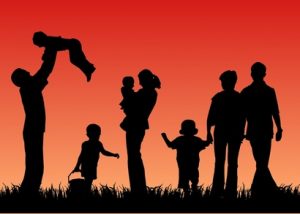More people are living with cancer – and living longer – than ever before. There are currently nearly 14 million cancer survivors in the United States and this number is expected to increase to nearly 18 million by 2022, less than 10 years from now. Is our healthcare system ready for this?
A new study by Janet de Moor from NCI’s Office of Cancer Survivorship and colleagues addresses the challenges that will be facing our nation over the coming years. The study was highlighted in this week’s issue of Cancer Research Update.
According to the authors, by the year 2020 two-thirds of all cancer survivors will be aged 65 or over. This population will be facing the challenges of aging as well as the challenges of being cancer survivors. The needs of cancer survivors vary widely according to their initial diagnosis, treatments they received, and their other health concerns and issues. The authors note that compared to people who have never had cancer, cancer survivors tend to have poorer health and functioning overall.
What is to be done? The article lays out recommendations for focusing research and improving clinical care:
• Identify effective ways to improve the delivery of follow- up and long-term care.
• Develop systems for researchers to collect information from cancer survivors concerning their physical and emotional well-being so that gaps in knowledge can be addressed.
• Use new technologies such as health IT to facilitate and coordinate long-term care.
• Improve comprehensive, coordinated pain management and comfort (palliative) care.
In the United States, the overall death rate from cancer has been decreasing and the incidence rate has decreased for many, though not all, cancers. Given this encouraging news, why is the cancer survivorship population expected to increase so dramatically?
There are two reasons. First, we are an aging population and cancer risk increases considerably with age. This means that even with a decrease in age-adjusted incidence and mortality rates, the number of new cases of cancer will continue to increase. Second, improvements in early detection and cancer treatment mean that people are living longer after a diagnosis of cancer.
The authors have well-researched and thoughtful recommendations and I hope that they serve as a call to action to researchers, practitioners and policy makers working in the health care arena. Stay tuned also for new information from the AICR/WCRF Continuous Update Project (CUP), which is systematically reviewing the literature on food, nutrition, physical activity and breast cancer survivors. A report is expected to be released this fall.
Susan Higginbotham, PhD, RD, is AICR’s Director of Research.






3 years after successfully beating throat cancer I still have extreme mouth dryness,.,. neck cramps ,.,. jaw lock and soreness and limited range of opening my mouth … my doctors shrug and tell me I am lucky to be alive ,,, anyone else in similar position.
My cancer surgery was 12/2011. I had a different surgery. However, I’ve experienced the same symptoms dry mouth (still do), stiff neck, limited range of opening my mouth, jaw soreness and a constant pain that ran from my neck down my left arm. I had to learn how to talk all over again ( still learning) I’m an insurance agent so being able to verbally communicate is essential to my business. I was able to go back to work six months after the surgery. This is how I got my life back. I started seeing a Chiropractor and a Massage Therapist. The Massage Therapist will get the soreness out of your jaw, mouth and neck and get the blood flowing to the muscles. The Chiropractor helped me with the range of motion in my neck and shoulder. I’m not in any pain. I still have dry mouth and told to drink a lot of water. I hope this helps. Good Luck